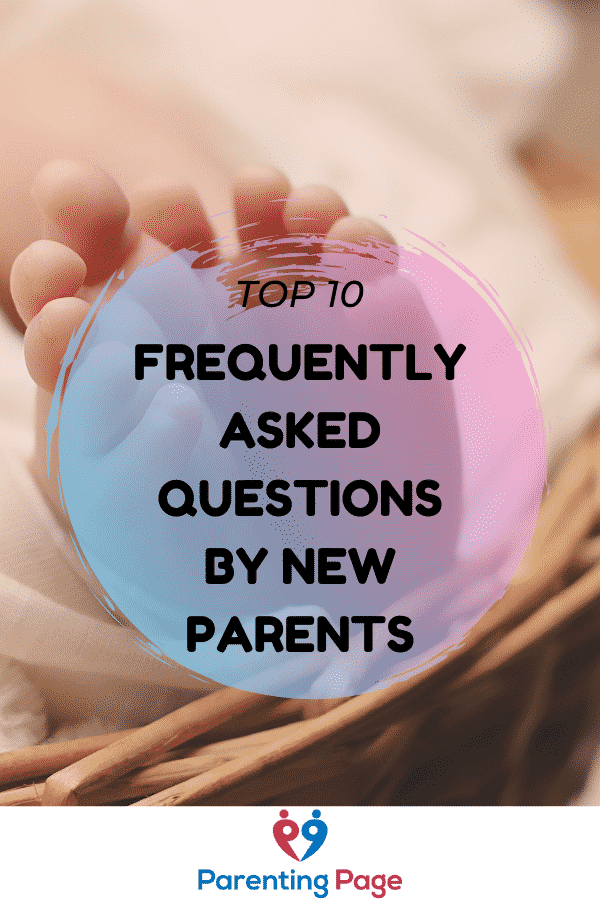Table of Contents
When a baby is born, every little thing changes for first time parents. All of a sudden, they have someone to provide for and take care of day and night. Gone are the days of doing whatever you want and getting a solid night’s sleep, now your time is spent trying to translate restless and crying, or cooing and sighing in wonder over how incredibly special that little one is.
And really, as cliche as it sounds it’s entirely true, even though having a baby is a huge responsibility for all parents, those adorable smiles, watching your baby learn and grow and hearing those giggles and squeals of delight are completely worth it.
First time parents have tons of questions. There is a lot of anxiety around knowing if their baby is normal, if things are okay, should they be doing it better. Rest assured that the two biggest things you are required to provide is love and patience. After that, arm yourself with as much knowledge as you can to clover the bases and give your child a safe start to life. If you are unsure, absolutely ask around, and look to a number of different sources to help guide you, professional parenting books, online blogs and of course your child’s pediatrician.
If you haven’t already done so, read up on preventing SIDS with Back-to-sleep methods and look up or do a training course on how to assist a child who is choking or apply CPR.
Of course there are other questions that pop up each and every day. Parents can be embarrassed to ask questions that seem so trivial, especially from a paediatrician, but not knowing what to do is normal. Accept that you are in new territory and every child (and parent) has unique elements.
Because of this, we’ve collected the most frequently asked questions by new parents. Take a look to know what to do when that situation comes.
How to make a baby stop crying?
A crying baby can be stressful for parents, especially if they are in earshot of other people. Firstly, relax. You being calm and breathing deeply will not only help you think more clearly and solve the problem, but your baby will pick up on it.
Soothing a crying baby might be a little hit and miss at times. Check to see if:
- They need changing or they or their bedding is wet
- It’s time for a feed (newborns will need milk as often as every three hours, sometimes even more if they are on a growth spurt)
- They have gas
- Their temperature is okay (not too hot or cold)
- If they are caught. If your baby is in a pram check that the sun is not in their eyes, their fingers haven’t been caught in anything and also check their hands, sometimes mom’s hair can wind around their little fingers causing them to cry over seemingly nothing.
If you’ve checked your baby over carefully and found nothing wrong, they might just need a cuddle.
Sometimes a child will just need to feel safe and protected. Swaddling can help with this as well as white noise. Try a white noise app. This won’t stop them crying if they are hungry or wet, but it will work wonders for settling them at other times as well as jiggling them gently (which is why car rides can help).
If your baby is crying because they are sick it will usually come with other indicators like vomiting, fevor, dehydration or change in skin colour. Check for any indications of health issues and if you are worried, phone a pediatrician for advice.
When should I stop breastfeeding?
Breastfeeding is so important for a baby’s health and immunity. If possible breastfeed your child for at least two years, however, the first six months are especially critical as this is the only nutrient your baby will take. Breastfeeding can be really challenging for the first few months but it does get easier as your body gets used to it, so stick with it for as long as possible.
The benefits are that your metabolism will be up so you’ll lose that baby fat fast. If you do need to stop early, that’s okay too, it’s mother’s choice and you need to do what’s right for you as well as your child.
After two years, it’s up to mother and baby to decide when to stop, find the fit that works for you.
In order to acquire all the possible benefits from a mother’s milk is to breastfeed the baby for 6 months (without other fluids, including water) and mixed with other foods for 12 to 14 months.
What to do if my baby has a rash?
When their baby has a rash, first time parents normally become anxious. In some cases, this is nothing to worry about. It is normal for a baby to get rashes most especially on their cheeks because their skin is adjusting to the environment. To prevent and treat nappy rash be sure to change your baby often and clean and dry them well before putting a new nappy on.
Some nappy free time is good to get air on their skin and nappy rash creams help soothe and protect. There are times that rashes are caused by food allergies. As a parent, you should watch your diet if you are breastfeeding.
How often should you sterilize baby bottles?
No, it’s okay not to sterilize after every use but recommended before the first ever use, and from time to time. If you are cleaning your bottles and pacifiers in hot water with detergent (or the top shelf of your dishwasher) it’s okay not to sterilize them as well.
There are baby food hygiene detergents you can use that are safe for baby, rather than regular detergents.
Are vaccinations safe for my baby?
Parents can be very anxious and uncertain about vaccinations, especially when your baby is only a week old, they seem so small and fragile. That’s why vaccines are so essential, they help a baby prepare for the germs and illnesses they may encounter in the world and give their body the ability to fight back.
It also helps to get the vaccinations yourself, if you haven’t before so you are less likely to pass on an illness to your child. Vaccines have been carefully tested and are safe for children. If you have any concerns your pardeiatrian is the best person to ask for advice.
How do I dress a baby?
The common rule of thumb for how to dress your baby when you are going out is to give them one extra layer than you have. So if you have a short sleeved shirt, give them a light long sleeve jumpsuit. If you are wearing a shirt and jacket, baby will need a shirt, pullover and blanket.
Pack a bag with you so you can adjust if the weather isn’t what you expected when you are out for your walk, and use logic so you don’t overdress or underdress your baby.
Is it okay for a newborn to go to a family gathering or in a public place?
It is normal for a parent to worry about their baby’s health, especially when it comes to Respiratory Syncytial Virus (RSV) for newborns. To go or not to go depends on a parent’s comfort levels. If you are going to be stressed and feel anxious, it’s best to stay home and relax. Proper hygiene is the best way to prevent the risk of illness transmission so it’s okay to ask the people you are with to please wash their hands before they have a cuddle.
What values should my family have?
So you’re all on the same page, it helps to agree on what values your family has as a team. Conventional family values serve as the foundation that sticks a family together. Come up with five values you believe are important and healthy for your family and make sure everyone acts together to live by them. Some examples you might choose include loyalty, respect and determination.
When do most babies learn to take their first step?
There is no ‘proper’ time for a baby to hit these milestones but some parents can feel intimidated by other children’s progress. Your paedretitrion will check in on important milestones during health checks (like rolling over, sitting, crawling and standing) and give you activities and advice if your child needs some help.
Most babies take their first step between 9 and 12 months but don’t stress if your child isn’t ready yet, and be okay about them trying and falling. If you are too protective they may feel unsafe and stop practicing, falling over is part of the process.
Is it wrong to discipline my child?
As a parent, one of your tasks is to discipline your child on how to behave. It is a task that takes time and patience. For parents, this can be one of their biggest challenges they face. The best way to discipline your child is through gentle, consistent reminders and showing them how you want them to behave, “this is how we do it, see?”. Of course they will test you and try to push the boundaries, stay calm.
It is recommended to teach them through the concept of “Show and tell”. If you yell at them, you teach them to yell, if you hit them, you teach them to hit, if you use force, you show them it’s okay to push someone around if they are smaller than you.
In addition, parents must set limits to their kids, give consequences if they will not behave properly and listen to them before taking appropriate action. Establish the rules early on and make sure your child knows what is expected of them before you set consequences, and make sure the consequences you give are relevant to the misbehaviour and the child’s age.



курсовая заказать недорого kupit-kursovuyu-67.ru .
Your comment is awaiting moderation.